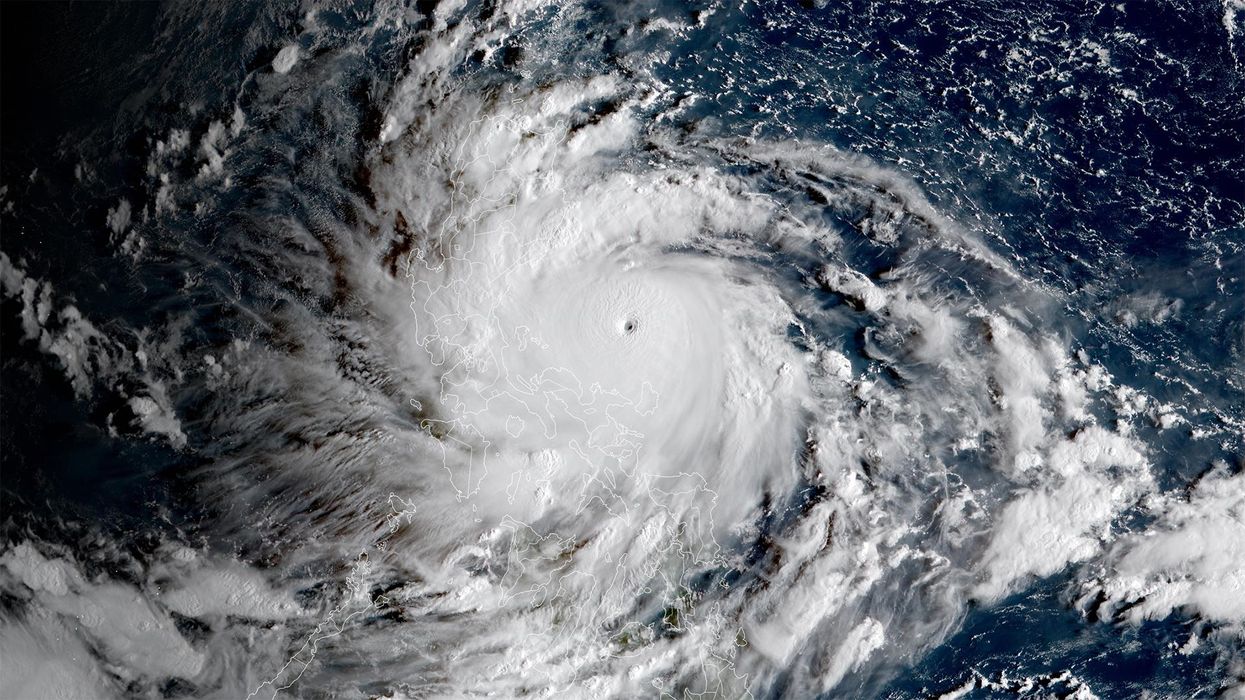(CNN) -- Hurricane Ian is strengthening rapidly in the Caribbean as it passes over the ultra-warm waters of the Caribbean and the Gulf of Mexico. The National Hurricane Center had predicted the system would rapidly intensify from a tropical storm to at least a category 4 hurricane in less than 72 hours.
It is an unprecedented forecast, experts told CNN, but one scientist says it is becoming more likely as the climate crisis advances, pushing ocean temperatures higher and laying the groundwork for tropical storms to explode at breakneck pace into deadly major hurricanes.
Rapid intensification is precisely what it sounds like -- a hurricane's winds strengthening rapidly over a short amount of time. Scientists have defined it as a wind speed increase of at least 35 mph in 24 hours or less.
The phenomenon played out with breathtaking speed in the Philippines this weekend. Super Typhoon Noru exploded in strength on its final approach toward the Pacific island nation, going from the equivalent of a category 1 hurricane to a category 5 overnight as residents around Manila slept.
Noru's rapid intensification right before landfall -- which was not predicted -- likely meant locals had no time prepare for the much stronger storm.
Hurricane Ian's has been in the forecast for days, giving Cuba and Florida the benefit of time. Winds in the storm increased from 45 mph Sunday evening to 80 mph late Monday morning, and more strengthening is in the forecast. Ian could intensify into at least a category 4 before it makes landfall in Florida midweek.
Rapid intensification has historically been a rare phenomenon, according to Allison Wing, an assistant professor of atmospheric science at Florida State University.
It "is really sort of at the extreme end of how quickly storms can intensify," Wing told CNN. "Only something like 6% or so of all forecast time periods have those types of rapid intensification rates observed associated with them. And so it's something that's by definition, a rare event. Sometimes it only happens a few times per season."
Live updates: Florida braces for Hurricane Ian
But human-caused climate change is stacking the deck in favor of more intense storms. So not only are they generating more rainfall and larger storm surge -- they are also more likely to be stronger and are intensifying faster.
"Climate change is increasing both the maximum intensity that these storms can achieve, and the rate of intensification that can bring them to this maximum," said Jim Kossin, a senior scientist at the Climate Service. "The intensification rates in Noru and Ian are good examples of very rapid intensification, and there have been many others recently."
Two ingredients must come together for rapid intensification to occur, Kossin told CNN. The first is that upper-level winds around the hurricane need to be weak -- strong winds can prevent a storm from intensifying or even tear a storm apart.
The second is that warm ocean water must extend well below the surface, going hundreds of feet deep, to provide enough fuel for the hurricane to strengthen.
More than 90% of global warming over the past 50 years has taken place in the oceans, according to the National Oceanic and Atmospheric Administration. The past five years have been the warmest on record for the world's oceans.
Scientists have shown humans are the dominant cause of the relentless warming trend. Planet-warming emissions from fossil fuels trap heat in the atmosphere, creating an energy imbalance. The oceans, in turn, absorb 90% of the excess heat, which has led to an alarming increase in temperature.
And much of that warming has happened in the top levels of the ocean where hurricanes get their energy, said Jeff Masters, a meteorologist at Yale Climate Connections.
"Hurricanes and typhoons are heat engines, which means they take heat energy from the oceans and convert it to the kinetic energy that are winds," Masters told CNN. "So if you increase the amount of heat energy in the ocean by warming it up, you're going to increase not only the maximum intensity they can get, but also the rate at which they get to that maximum intensity."
A 2019 study found that Atlantic hurricanes in particular showed a "highly unusual" increase in rapid intensification from the 1980s to the early 2000s -- a trend that could only be explained by human-caused climate change. And, concerningly, scientists found that the most significant changes were happening to the strongest storms, making the most life-threatening hurricanes even more dangerous.
"Climate change increases the odds that you'll get a rapid intensifier," Masters said.
Some of the United States' most devastating recent hurricanes were ones that rapidly intensified right before landfall -- something Hurricane Ian is not expected to do. Most recently, Hurricane Ida in 2021 strengthened from a category 1 to a strong category 4 in the 24 hours before it made landfall in Louisiana and left a trail of destruction in its wake from the Gulf Coast to the Northeast.
Forecasters are getting better at seeing the signs of this phenomenon before it happens, though, which gives people along the coast more time to prepare for the worst.
Kossin said there are several reasons for this. One is that meteorologists are becoming more confident in the computer forecast models, which are improving at seemingly light speed. The other is that they have seen more extreme cases of rapid intensification in recent years, which makes it easier to forecast them in the future.
Masters told CNN it all adds up to better forecasts.
"The forecasts are unprecedented primarily because the [National] Hurricane Center is getting better at doing their job," Masters said. Weather models "have gotten so much better. And our techniques for forecasting are getting better."
The-CNN-Wire
™ & © 2022 Cable News Network, Inc., a Warner Bros. Discovery Company. All rights reserved.


















































